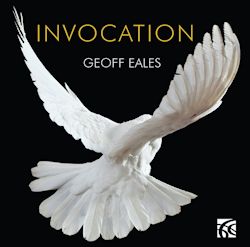The Seven Wonders
Rapture
Untamed
Dancing River
Boogie Train
Yearning
On Gossamer Wings
Back to the Root
In the Abbey
Northern Lights
One Step from the Edge
They Can’t Harm You Now
Geoff Eales (piano)
Recorded April 2014 in Wyastone Leys [67:32]
The latest of Geoff Eales’ recitals for Nimbus finds the British pianist in richly pluralist form. Casting a wide stylistic net is something he does
conspicuously well, though never at the expense of losing a sense of his own personality; he remains recognisably himself whether evoking Stravinsky or
Boogie, or whether he draws out the timbral suggestiveness and harmonic richness of Impressionism. Solo recitals are hard enough at the best of times, so
this wide net is a decided advantage. These twelve improvisations draw on the catholicism of his musical interests. They are also imbued with his stirring
rhythmic ingenuity – The Seven Wonders, for example, starts in seven-time – and a copious amount of lyric intensity. Each tune has a strong sense
of individuality; Rapture, for instance, with its rich breadth and rippling trills, is followed by Untamed with its turbulent energy.
Some of these improvisations are topographical in inspiration – the Great Wall of China, say, or the Wye Valley – though not descriptive, as such: more,
they are evocations. Dancing River is especially good (Eales is good at dance patterns) with its Debussian heritage and Messiaen-like treble
colour. Boogie Train shows the other side of the Eales coin – full of flair and Keith Jarrett-tinged Gospel exultation, played out with a rich
pianistic palette. In contradistinction, there are a few mordant impressionist chords to offset the prevailing tristesse of Yearning. But
he is also in touch with down-home, and there’s a funky start to Back to the Root, which opens out into a full-scale blues workout. There’s a
mystic quality to some of his chords in In the Abbey – does Eales ever relax with some Scriabin? – which takes Tintern Abbey for its inspiration,
and there’s glittering a-plenty in Northern Lights. The last track is a heartfelt but delicate elegy, and ends the album on a note of intimate
reflection. It’s a good album, too, played by a master technician with the imagination and structural discipline to convey these improvisations fully
formed.
Jonathan Woolf
